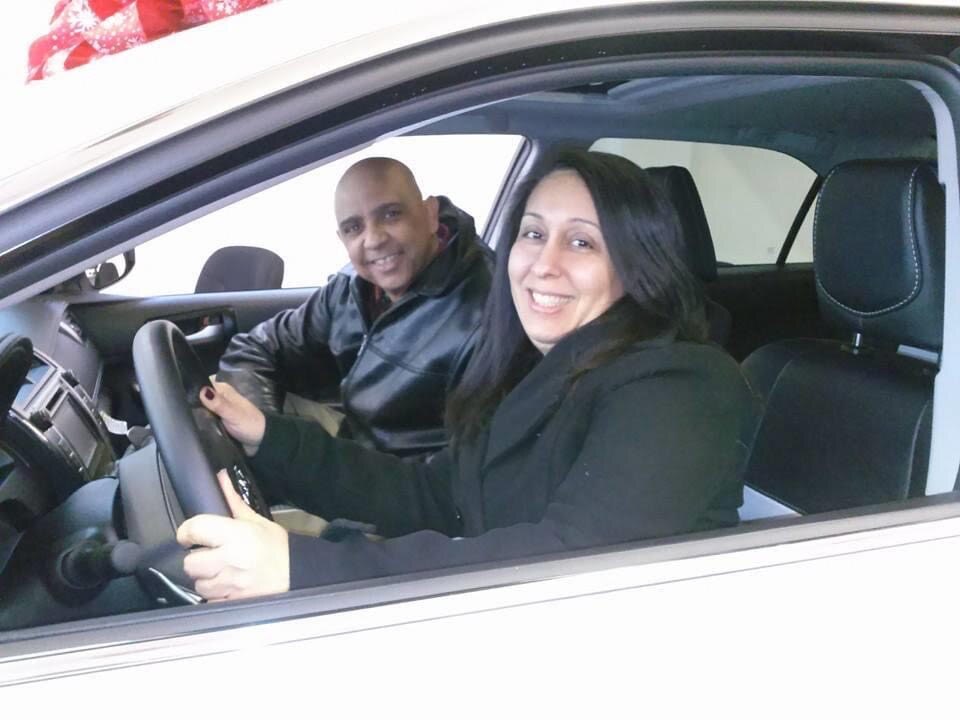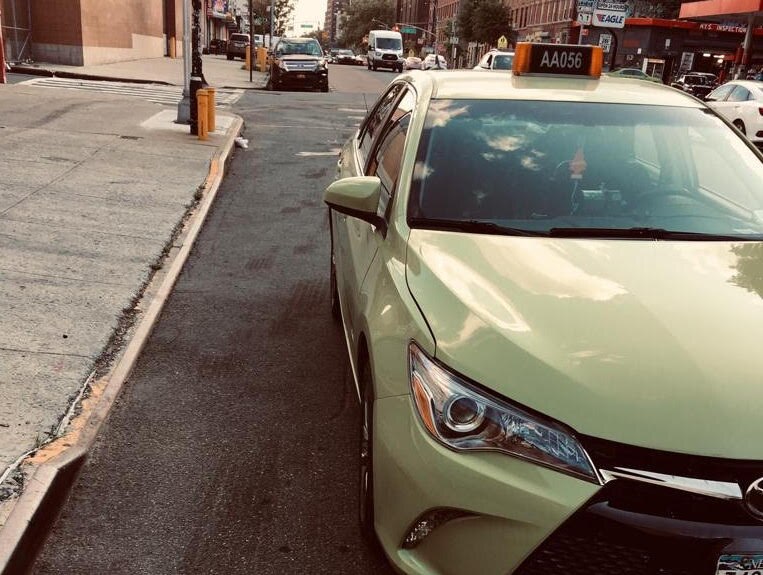Taxi drivers are on the front lines of taking covid-19 patients to hospitals. As cabbies get ill, they can’t pay their bills, including the hefty fees to keep their taxis.
Raul Romero thought he would be fine as long as he wore a mask in his taxi. He read all the notices from New York City’s Taxi and Limousine Commission. Taxis are “essential services,” they said, and drivers can “go about their daily lives” with a few extra precautions. His daughter bought him Lysol, gloves and a mask. But mostly Raul thought of all his bills — $1,100 rent, $440 car and liability insurance, $320 taxi dispatch fee, $150 monthly parking, $120 cellphone bill, $60 Internet bill. Health insurance. Groceries. How could he stay home?
“This is my job. We depend on it,” Raul told Sandra, his wife of 32 years.
Now he’s sick. His wife’s sick. His older daughter and son-in-law are sick. Raul can’t work. And there wasn’t enough money for April rent. Raul keeps rerunning the days leading up to his illness in his mind. Sandra begged him to stay home. They live in the Bronx. It’s a tight two-bedroom apartment.
The couple’s adult daughters live nearby. The girls also urged him to stay home. They said they would find money. Somehow. His diabetes put him at risk, they said. And he’s 58. But Raul watched Sandra keep walking out the door to nanny for a Manhattan family. She was working. He would, too.
At first, Raul mostly drove doctors and nurses, trip after trip from homes to hospitals. He felt almost heroic. Doing his part in the pandemic. He signed up to delivery groceries to seniors.
Then he started getting patients who needed a ride to the hospital. Some told him they wanted a covid-19 test. Some work masks. Some did not. Some coughed in his small Toyota Camry. A few didn’t cover their mouths.
Raul replayed all the faces of people he drove on Saturday, March 14. He thinks he knows who infected him. The man said he tested positive for covid-19. He wanted to get to the hospital. He coughed. Raul slumped in his seat. He pulled the hood of his sweatshirt over his head. He felt helpless. New York City taxi drivers can’t kick people out or refuse to drive them.
Four days after that 20-minute ride, Raul got a fever. The Romeros don’t own a thermometer. But he was feeling bad enough that Sandra forced him to drink her “sick tea.” The kind she learned to make as a child in the Dominican Republic, full of herbs and garlic.
Raul was hot and aching all over. Sandra barred him from leaving the apartment. He didn’t protest. Sandra called the health hotline to report his symptoms. She wanted him tested.
“I called the hotline. I explained everything. My husband had a fever. He hurt all over. He couldn’t sleep. Could they get a coronavirus test?” asked Sandra. “They just told us to stay home because the hospitals are so full.”
Their daughters wanted to help. Sandra said no. The family worried that the oldest, Stephanie, had already been exposed. She visited Raul on March 15. She has not been able to stop working. She teaches second grade in a public school. She’s doing virtual lessons from her living room. Trying to smile for the kids. Half her students don’t have a computer or tablet at home. She keeps calling around, trying to find them equipment.
“Teachers have the job to teach the child the curriculum. Now, on top of that, we are teaching the child and their parents how to use electronic devices. It’s a challenge,” said Stephanie, who has been fighting headaches and a fever lately. It’s likely she has covid-19, but she hasn’t been tested. Her husband is showing symptoms, as well.
The Romeros’ other daughter, Sthelyn, is an immigration advocate. She helps people navigate the U.S. court system. She knows how to deal with bureaucracy. She figured she could help her dad get unemployment benefits. Taxi drivers are self-employed. They don’t get sick pay or other benefits.
To complete New York’s unemployment application, Raul has to call and speak to someone. He dials multiple times a day from bed. He hasn’t reached anyone in two weeks.

Sandra and Raul Romero in 2016 when they bought the Toyota Camry that Raul now uses as his taxi. The car was later painted green. (Courtesy of the Romero family)
Raul, Sandra and Sthelyn have a new daily routine. It begins by calling the unemployment office. They dial from separate phones. They start at 7:55 a.m., hoping one will get lucky when the office opens at 8. But they always get the recording. Sandra has memorized it in English and Spanish: “All the phone lines are busy. Please call back again later.”
“We know there are a lot of people in the same situation as us, but my husband has gone two weeks without pay and without being able to call anyone,” Sandra said.
The family she nannies for in Manhattan wanted her to come. She worked through March 27. She felt healthy. And the Romeros desperately needed her $500 weekly pay.
Last weekend, Sandra began aching all over, too. She tried to ignore it. She’s 50. She told herself it was just menopause. Then the cough and headache began. Now it’s hard for her to speak without coughing. She already has asthma.
She likely has covid-19. She worries who else she infected. She worries whether the family will still pay her. She cried when they sent money this week.
The Romeros couldn’t pay their rent. Sandra is cautious with their money. They pay for groceries and medicine first. Then cellphone and Internet. She plans to cancel one phone. New York City put a moratorium on evictions. They can’t be kicked out. But nothing stops their landlord from putting a black mark on their credit.
The family does daily FaceTime chats. Sthelyn monitors her parents’ breathing. She has learned to count breaths. To look for signs of severe strain.
Beyond health, the family’s big fear is Raul losing the taxi. He has been out for 16 days. He isn’t making money. Some cabbies have begged the city for relief. Perhaps waiving the $175 license or $900 inspection fees. But the city is telling drivers to take out loans.
“I see taxi drivers still driving around with masks and gloves and risking their lives because they have no choice,” said Sthelyn. “Right now, I feel so helpless.”
Sthelyn is the only healthy member of the family. She has become the lifeline to the outside world. She orders groceries for delivery. She spent half an hour battling CVS. Could they deliver her parents’ medications?
Then there are Sthelyn’s clients. Many are undocumented immigrants. She can’t stop thinking about the EMT who called this week. He told her he’s been using the same mask for three weeks. It’s only a matter of time before he gets sick. He won’t get unemployment aid or a $1,200 relief check.
The Romeros are U.S. citizens. Raul and Sandra have spent 40 years in the Bronx. They never relied on government assistance. Now they pray it comes quickly. They should get a $2,400 check in a few weeks. And maybe unemployment aid — if they can just get through. But will it be enough to save Raul’s taxi? He kept it after 9/11. He kept it through the Great Recession. Now they run the numbers. They don’t quite add up.
Sandra keeps making her tea. She can’t stop thinking about one song lyric. It comes from a popular 1970s Spanish tune: “Si se calla el cantor, calla la vida,” or “If the singer goes quiet, the life goes quiet.”
In a city that has suddenly gone quiet, she doesn’t want the taxi driver to be silenced.

Follow us on our Facebook and Twitter pages for the latest stories, products & updates.
– Source: Heather Long – The Washington Post




















